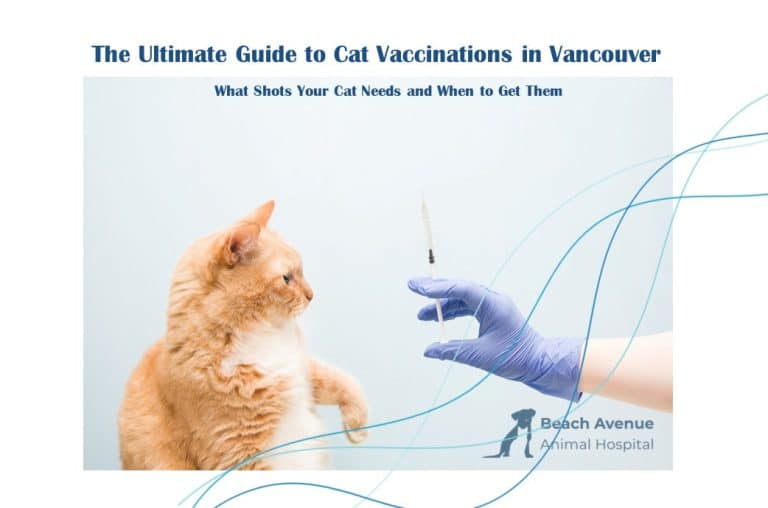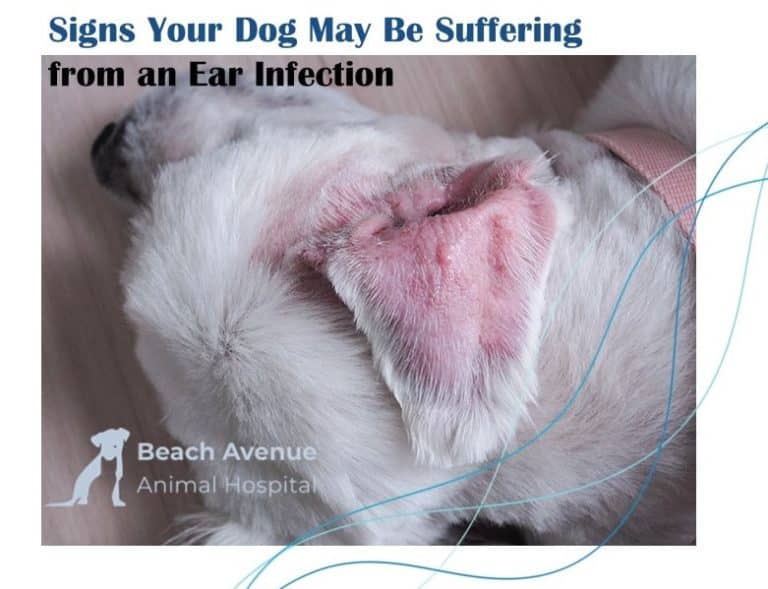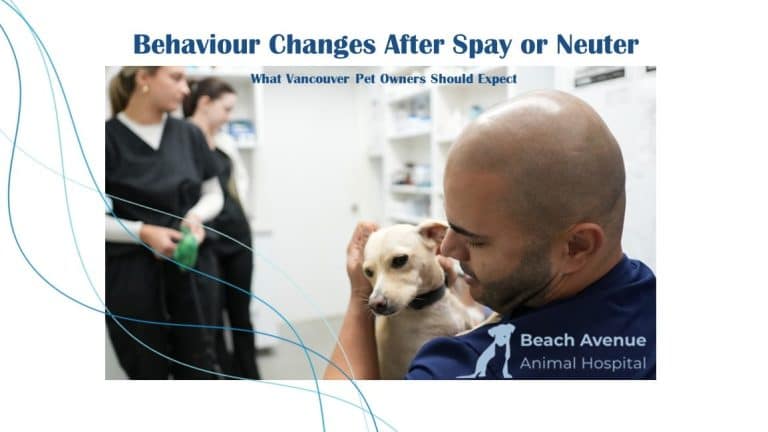When it comes to keeping your cat healthy, dental care is one of the most overlooked—but most important—aspects of their overall well-being. Cat owners often wonder: “Do I really need to brush my cat’s teeth, or are dental treats enough?” The short answer: while both have value, brushing remains the gold standard—and professional dental care is essential to complete the picture.

If you’re a cat parent in Vancouver or nearby neighborhoods like Yaletown, False Creek, Coal Harbour, or the West End, this guide will help you understand what’s best for your furry friend and when to seek expert care from trusted clinics like Beach Avenue Animal Hospital.
Why Your Cat’s Dental Health Matters
Cats are prone to dental issues such as:
-
Plaque and tartar buildup
-
Gingivitis (inflammation of the gums)
-
Periodontal disease
-
Tooth resorption (a painful condition where the tooth structure breaks down)
Left untreated, these conditions can lead to serious pain, infection, and even organ complications due to bacteria entering the bloodstream.
Brushing Cats Teeth: The Gold Standard
Brushing is the most effective way to maintain your cat’s oral health at home. It removes plaque directly, prevents tartar accumulation, and helps maintain healthy gums.
Benefits of brushing:
-
Direct removal of plaque and bacteria
-
Helps prevent gum disease and tooth loss
-
Improves breath and long-term health
Tips for brushing success:
-
Use a soft-bristled cat toothbrush or finger brush
-
Only use pet-safe enzymatic toothpaste (never human toothpaste)
-
Start slowly—let your cat get used to the taste and sensation
-
Brush at least 3–4 times per week, if not daily

What About Dental Treats?
Dental treats can help reduce plaque on the outer surfaces of teeth, especially when they’re VOHC (Veterinary Oral Health Council) approved.
Pros:
-
Easy to administer
-
Helps reduce mild plaque buildup
-
Great supplement for busy owners or cats who resist brushing
Cons:
-
Limited effectiveness—can’t reach below the gum line
-
Often high in calories
-
Doesn’t replace the need for vet cleanings
Brushing vs. Dental Treats: A Quick Comparison
| Feature | Brushing Teeth | Dental Treats |
|---|---|---|
| Effectiveness | ✅ Superior | ⚠️ Moderate |
| Cat Cooperation Needed | ⚠️ High | ✅ Low |
| Gum Disease Prevention | ✅ Strong | ⚠️ Limited |
| Cost-Effective | ✅ Yes | ✅ Yes |
| Vet Recommended | ✅ Absolutely | ✅ As a Supplement |
Both options have their place. Brushing offers the most comprehensive care, while dental treats can be a useful addition—especially when used as part of a larger dental care routine.
Why Professional Dental Care Still Matters
Even with diligent home care, professional cleanings are essential. Brushing and treats only address the visible portion of the teeth. Many serious dental problems occur beneath the gum line, where only a veterinary professional can examine and treat them properly.
At Beach Avenue Animal Hospital, we provide comprehensive pet dental services, including:
-
Dental exams
-
Ultrasonic scaling and polishing
-
Digital dental X-rays
-
Tooth extractions (if necessary)
-
Preventive care recommendations
We’re proud to be recognized as one of the best veterinary clinics in Vancouver for feline dental health—serving communities throughout Downtown Vancouver, Yaletown, and beyond.
Local Tips for Cat Owners in Vancouver
If you live in a high-rise or condo in neighborhoods like False Creek, Coal Harbour, or the West End, your cat likely lives an indoor-only lifestyle. This makes regular dental checkups even more important, since diet and activity levels can affect oral health.
Busy lifestyle? No problem. Our team offers flexible appointment options and gentle, fear-free handling to make your visit easy—for both you and your cat.
Brushing and dental treats both play important roles in your cat’s oral care—but neither replaces the need for professional dental exams. At Beach Avenue Animal Hospital, we provide the personalized care your pet deserves and are proud to serve cat owners across Vancouver, including Yaletown, Coal Harbour, and the West End.
Ready to take the next step in your cat’s dental health?
Schedule a dental exam today.
Because every purr deserves a healthy smile.

Frequently Asked Questions About Cat Dental Care
1. Do I really need to brush my cat’s teeth?
Yes. Brushing is the most effective way to prevent dental disease. It removes plaque, supports healthy gums, and can prevent painful conditions later on.
2. Are dental treats enough for my cat’s oral health?
No. Dental treats can help reduce surface plaque, but they don’t clean below the gum line. They’re best used as a supplement to brushing and professional cleanings.
3. How often should I brush my cat’s teeth?
Daily is ideal, but brushing at least 3–4 times a week can significantly improve your cat’s oral health.
4. What kind of toothpaste should I use for my cat?
Always use pet-specific toothpaste. Human toothpaste contains ingredients like xylitol or fluoride, which are toxic to cats.
5. How do I get my cat used to brushing?
Start slow. Let your cat lick the toothpaste first, then introduce the brush gently over a few days. Use rewards and positive reinforcement.
6. How often should my cat have a professional dental cleaning?
Most cats benefit from a professional cleaning once every 12–18 months, depending on their age, breed, and dental history.
7. What are signs my cat has dental problems?
Bad breath, drooling, difficulty chewing, pawing at the mouth, swollen gums, or loose teeth are common signs of dental issues.
8. Can dental disease affect my cat’s overall health?
Yes. Bacteria from gum infections can spread to vital organs like the heart, liver, and kidneys, leading to serious health problems.
9. Is professional dental care safe for my cat?
Yes, when performed by a qualified vet. Clinics like Beach Avenue Animal Hospital use safe anesthesia, advanced monitoring, and experienced teams to ensure your cat’s safety.
10. Where can I get my cat’s teeth professionally cleaned in Vancouver?
Beach Avenue Animal Hospital is a trusted clinic serving cat owners across Vancouver, including Yaletown, Coal Harbour, the West End, and False Creek. They offer comprehensive dental exams and cleanings with a caring approach.










